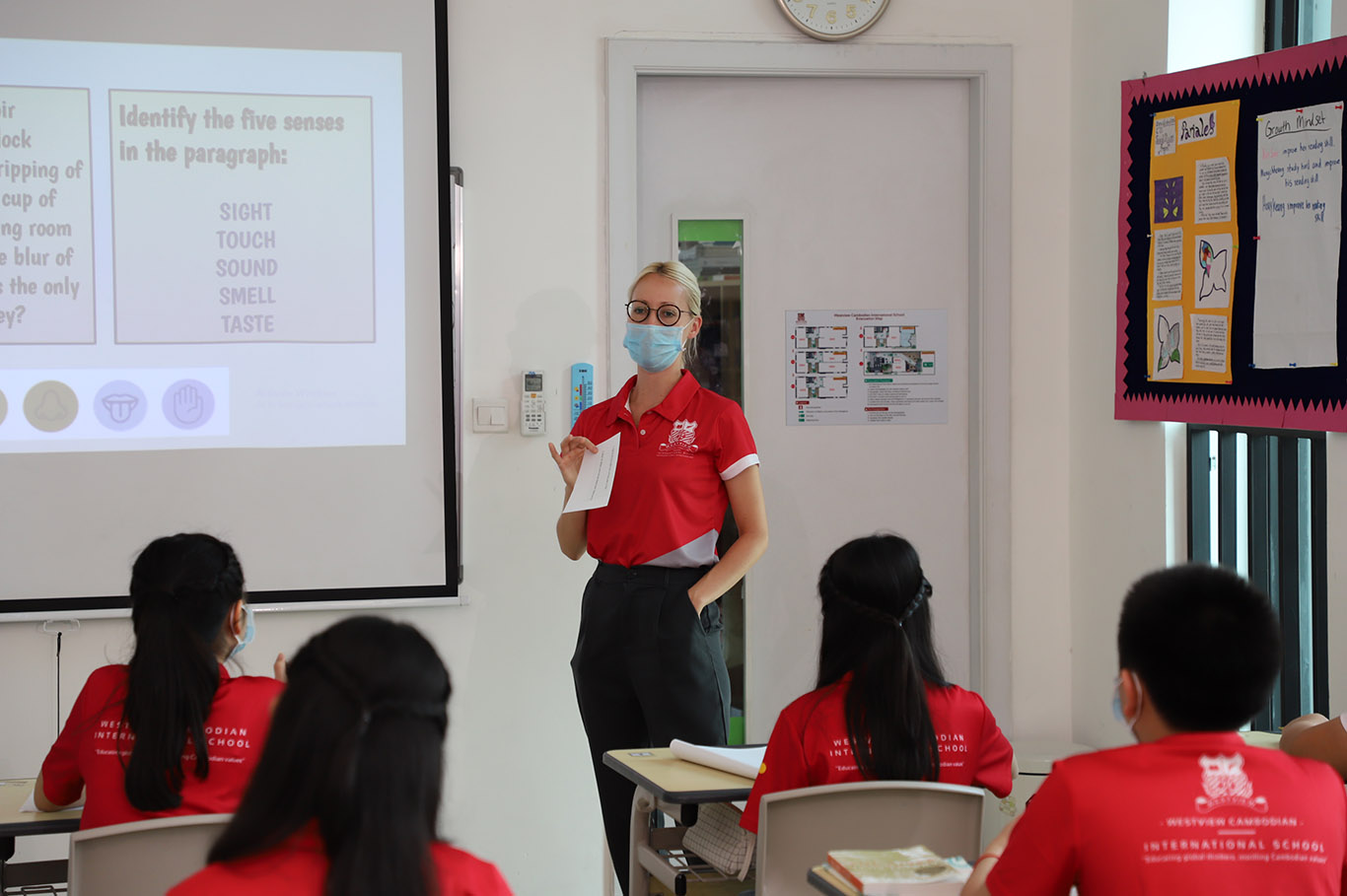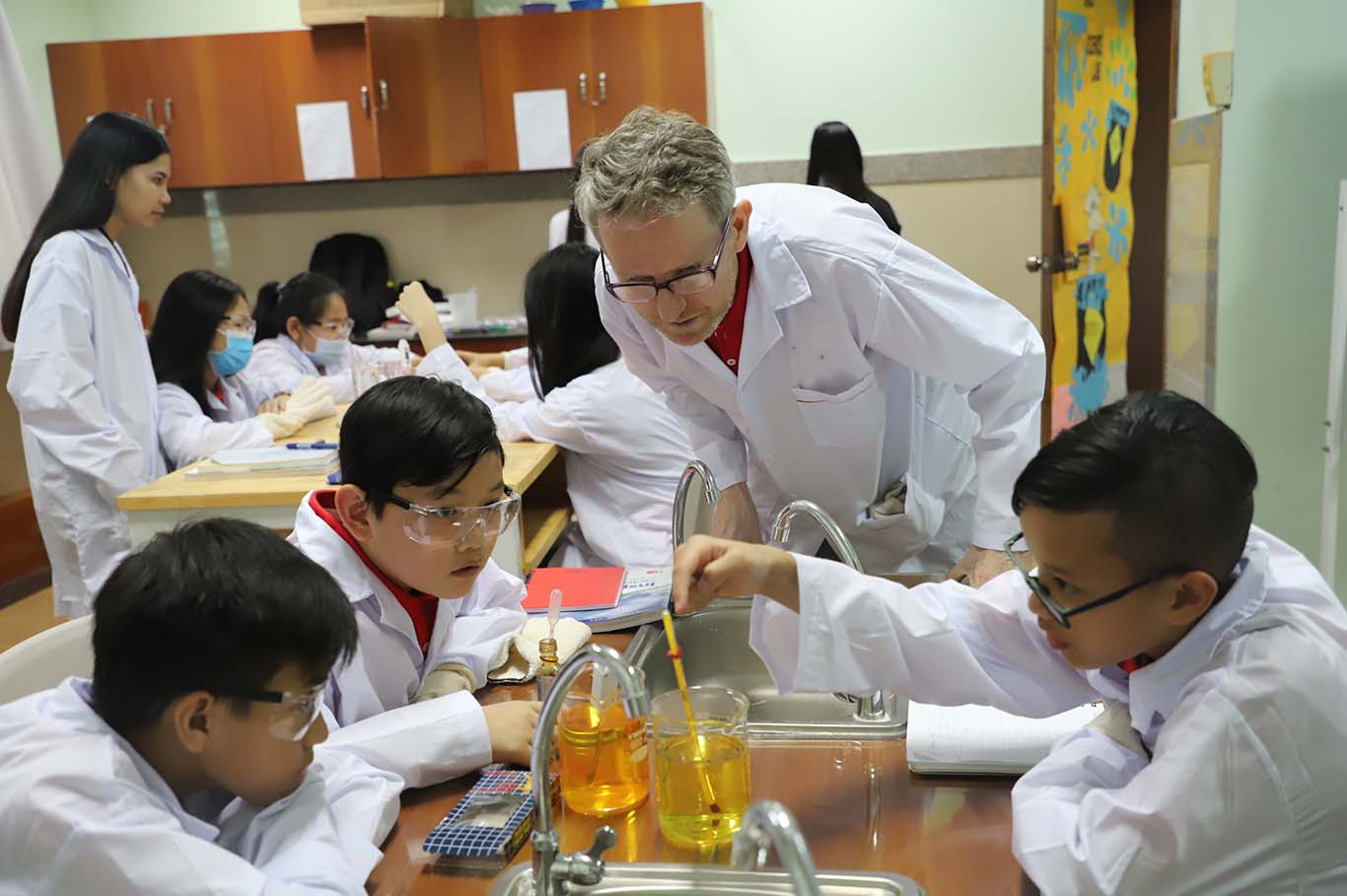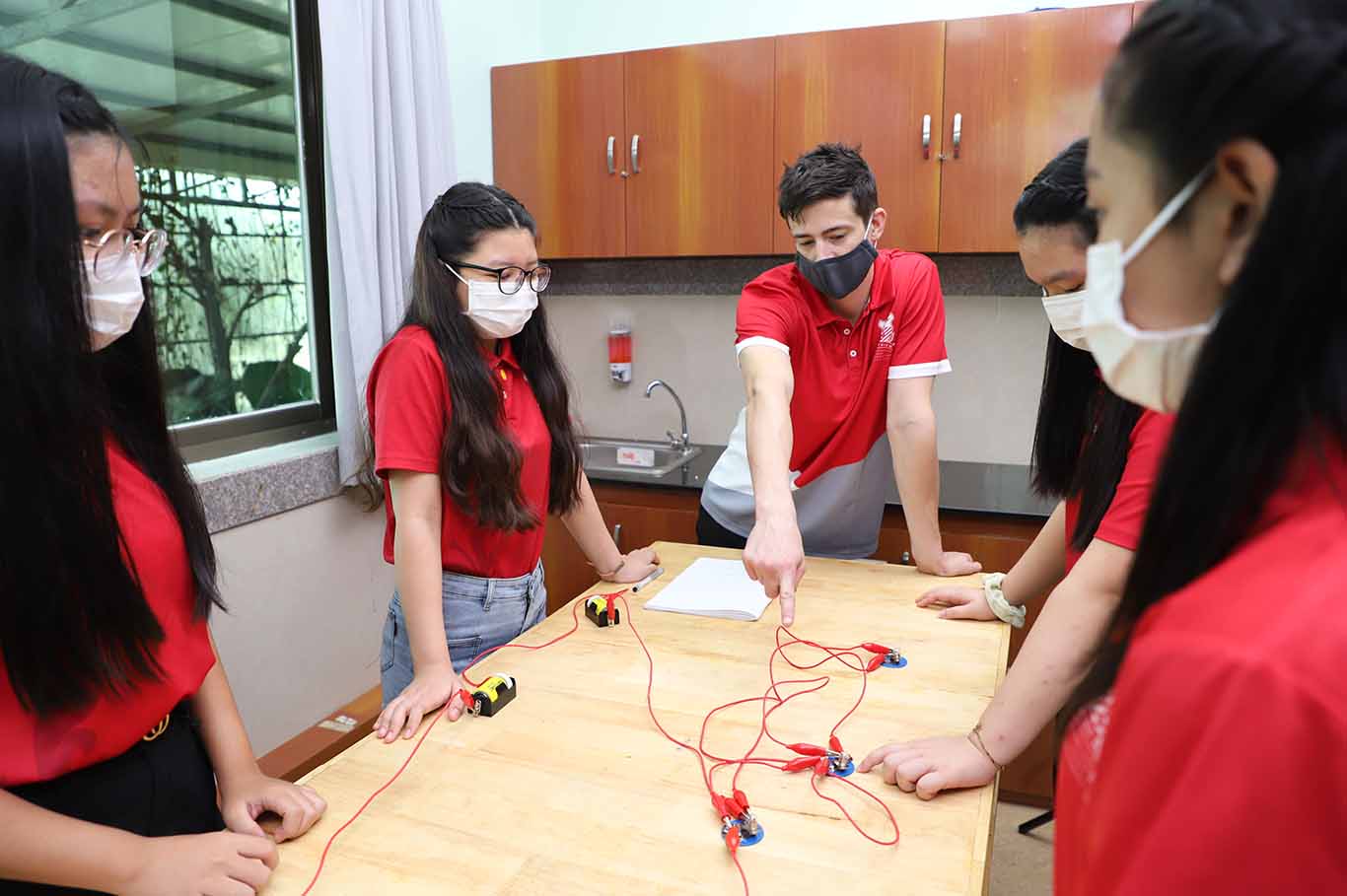English Language Arts
The US Common Core state standards for English Language Arts asks students to read stories and literature, as well as more complex texts that provide facts and background knowledge in areas such as science and social studies. Students are challenged and asked questions that encourage them to refer back to what they have read. This approach stresses critical-thinking, problem-solving, and analytical skills that are required for success in college, career, and life.
Our ELA curriculum focuses on reading assigned set texts, writing, speaking and listening for a wide range of purposes and audiences. The complexity of texts that students encounter at Westview increases each year, allowing students to develop their reading fluency, comprehension and critical insight into different types of literature.
Even though the main focus in ELA is on literature and literary nonfiction texts, the skills that are taught in this subject will transcend the complex literary texts encountered and touch on a variety of other subjects that will allow students to build on their ever-growing knowledge of different concepts and the world around them.

Mathematics
The sequencing of topics in our Mathematics curriculum derives from evidence-based practices that allow students to develop reasoning and analytical skills, and make conclusions based on evidence that is essential to both private deliberation and responsible citizenship
Students will be able to use and apply their mathematical thinking developed at Westview in various contexts, develop persistence in problem solving, forming a deep conceptual understanding and procedural fluency; and in turn develop the ability to reason, prove, justify and communicate in their daily lives.
By the end of grade 12, students will have built a strong foundation for applying the essential understanding and skills in math to solve real world problems, preparing them for college, careers, and civic life.
The knowledge and skills students need to be prepared for mathematics in college, career, and life are woven throughout our curriculum through the development of real-world learning opportunities.

Science
Our Science curriculum is designed to spark student curiosity, empower learners to ask more questions and to think scientifically. The program Grades 5 to 8 is derived from the Next Generation Science Standards (NGSS). Grades 5 to 8 study a variety of science disciplines including chemistry, physics, environmental, geology, astronomy and biological sciences.

The basis for the program in Grades 9 and 10 comes from the International General Certificate of Secondary Education (IGCSE) program and is adapted by teachers to meet the needs of our students and prepare them for success at the upper grade levels. In Grade 9 students study chemistry and in Grade 10 students focus on biology.
As we progress into Grades 11 and 12 students will study the Advanced Placement Science course with students studying Environmental Science in grade 11. Students will sit an external exam for the Advanced Placement courses in Grades 11 and 12.
Our goal in the science program is to make students scientifically literate, critical thinkers and aware of scientific issues relating to them personally and globally.

Global Perspectives
Global Perspectives is a unique, transformational programme that helps students at every stage of school education develop outstanding transferable skills, including critical thinking, research and collaboration.
This innovative and stimulating skills-based programme places academic study in a practical, real-world context. It gives students in Grades 5 to 12 the opportunity to develop transferable skills such as critical thinking, problem solving, research, communication and collaboration that they need to be successful at school and university as well as in their future careers.
At Westview, a wide range of learning opportunities arise in social studies for students to argue and explain their viewpoints on a wide range of topics relating to this subject, allowing them to form a strong insight into their own beliefs and ideas and how to articulate them effectively.

